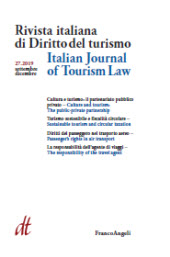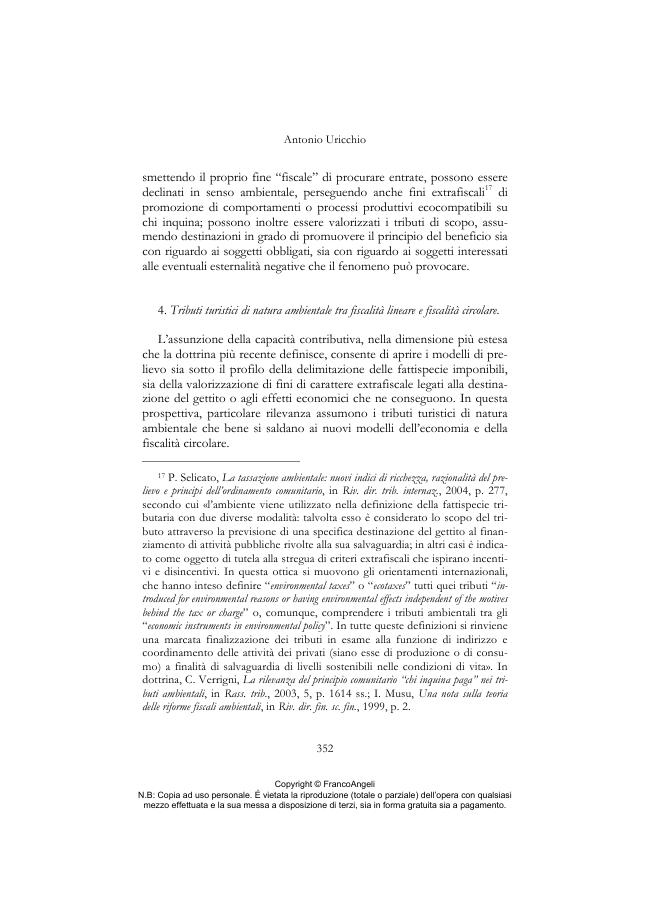Turismo sostenibile e fiscalità circolare
340-364 p.
1. La leva fiscale e il turismo sostenibile. - 2. La valorizzazione del turismo sostenibile nelle politiche europee. - 3. Turismo sostenibile e responsabilità sociale delle imprese del settore. - 4. Tributi turistici di natura ambientale tra fiscalità lineare e fiscalità circolare. - 5. Le imposte di scopo nel turismo. [Testo dell'editore].
Circular taxation, as an essential model of a new tax system, is well suited to tourism, both because it appears suitable to limit the effects of this phenomenon on nature, the environment and natural heritage, contrasting the negative externalities that may derive from it, and because it can prove to be suitable for promoting sustainable and responsible tourism through facilitations for the benefit of those activities that meet environmental standards, guaranteeing the public use of natural and common goods.
Tax relief institutions can influence the economy of tourism, contributing to its growth or declination according to objectives deemed worthy (e.g. promotion of sustainable tourism, cultural tourism, religious tourism, or more generally the quality and competitiveness of the sector, safeguarding efficient and rational use of natural and infrastructural resources, etc.). Particularly debated is the introduction of special taxes concerning tourism activities, both aimed at taxing the wealth produced by tourism businesses (exhibitors, tour operators, travel and transportation agencies, etc.) and the consumption of tourists, residents and non-residents. In this perspective, particular importance is given to tourism taxes of an environmental nature which are well-suited to the new models of the economy and circular taxation, as well as the use of purpose taxes in the tourism sector. [Publisher's text].
-
Artikel aus derselben Ausgabe (einzeln erhältlich)
-
Informationen
ISSN: 2039-9391
THEMENBEREICHE



